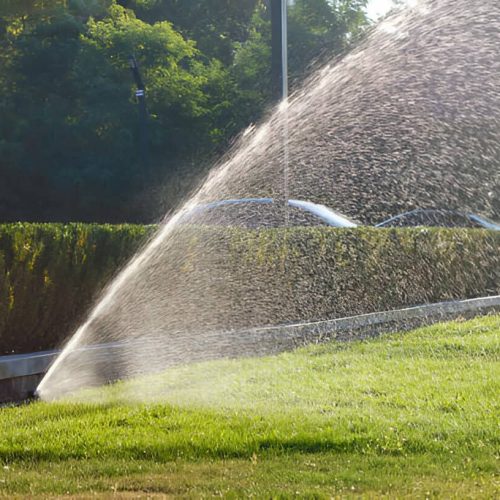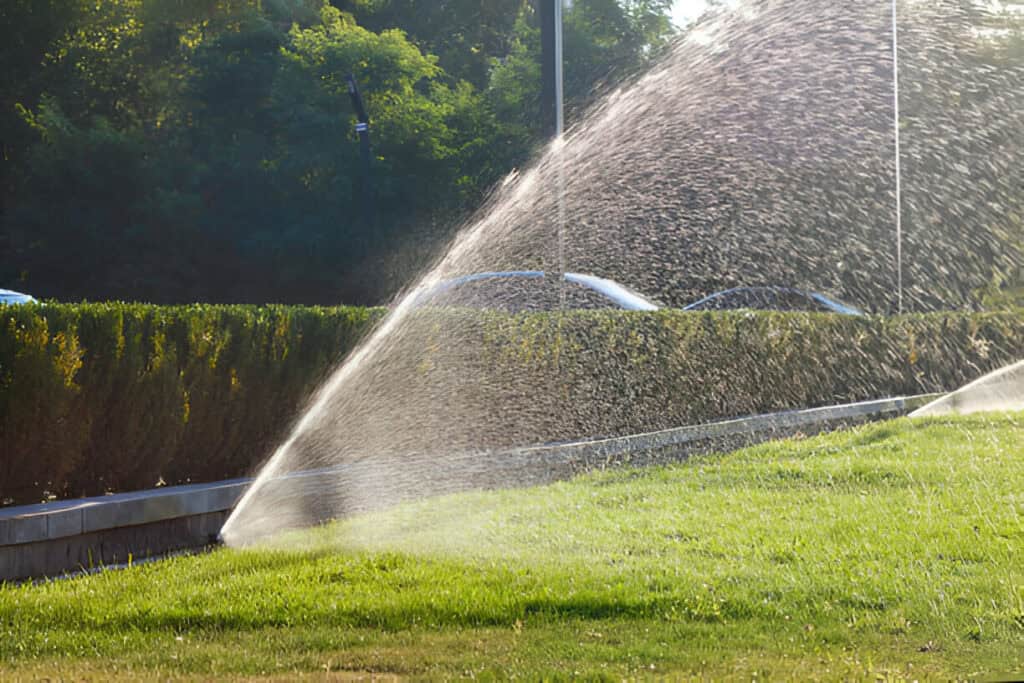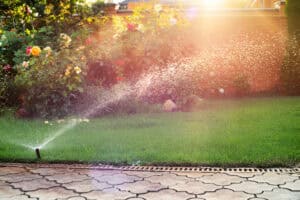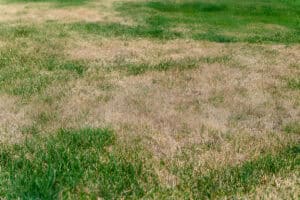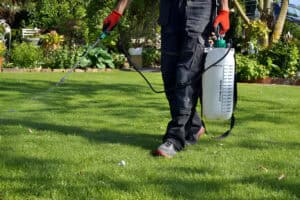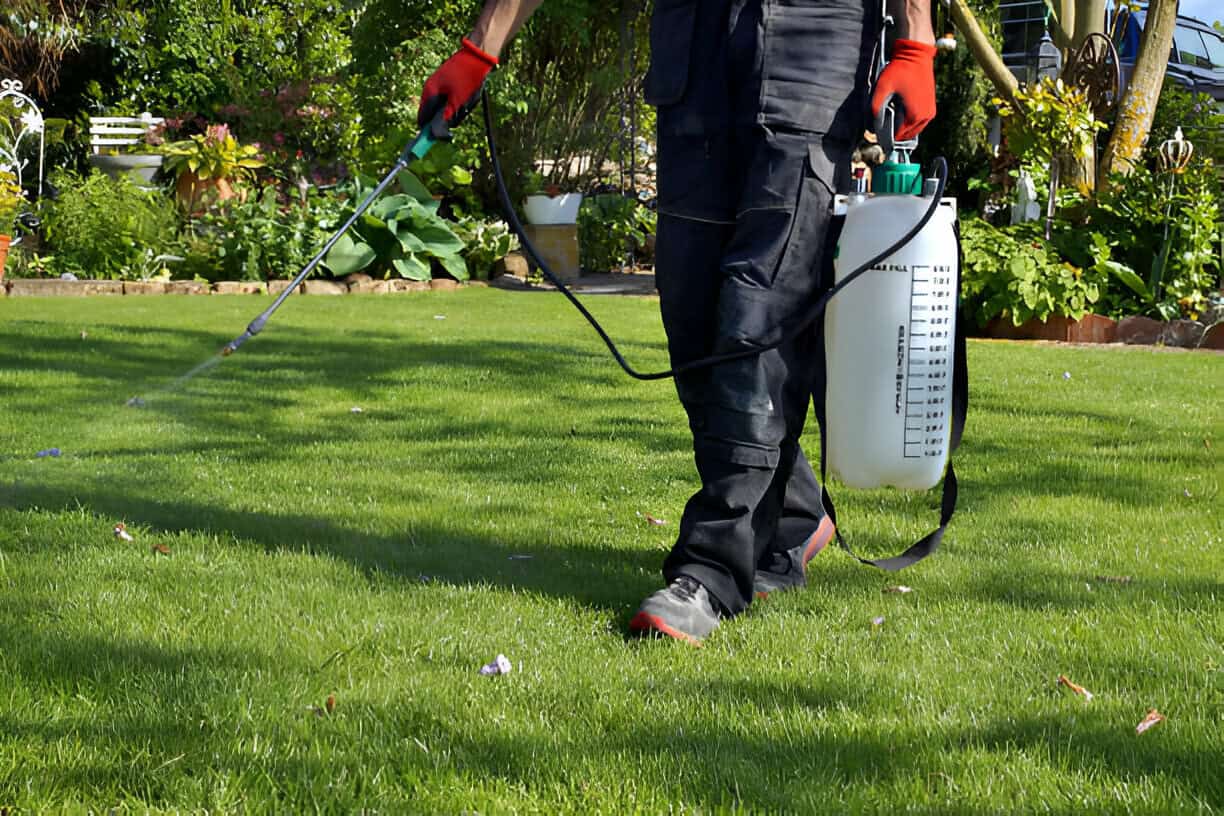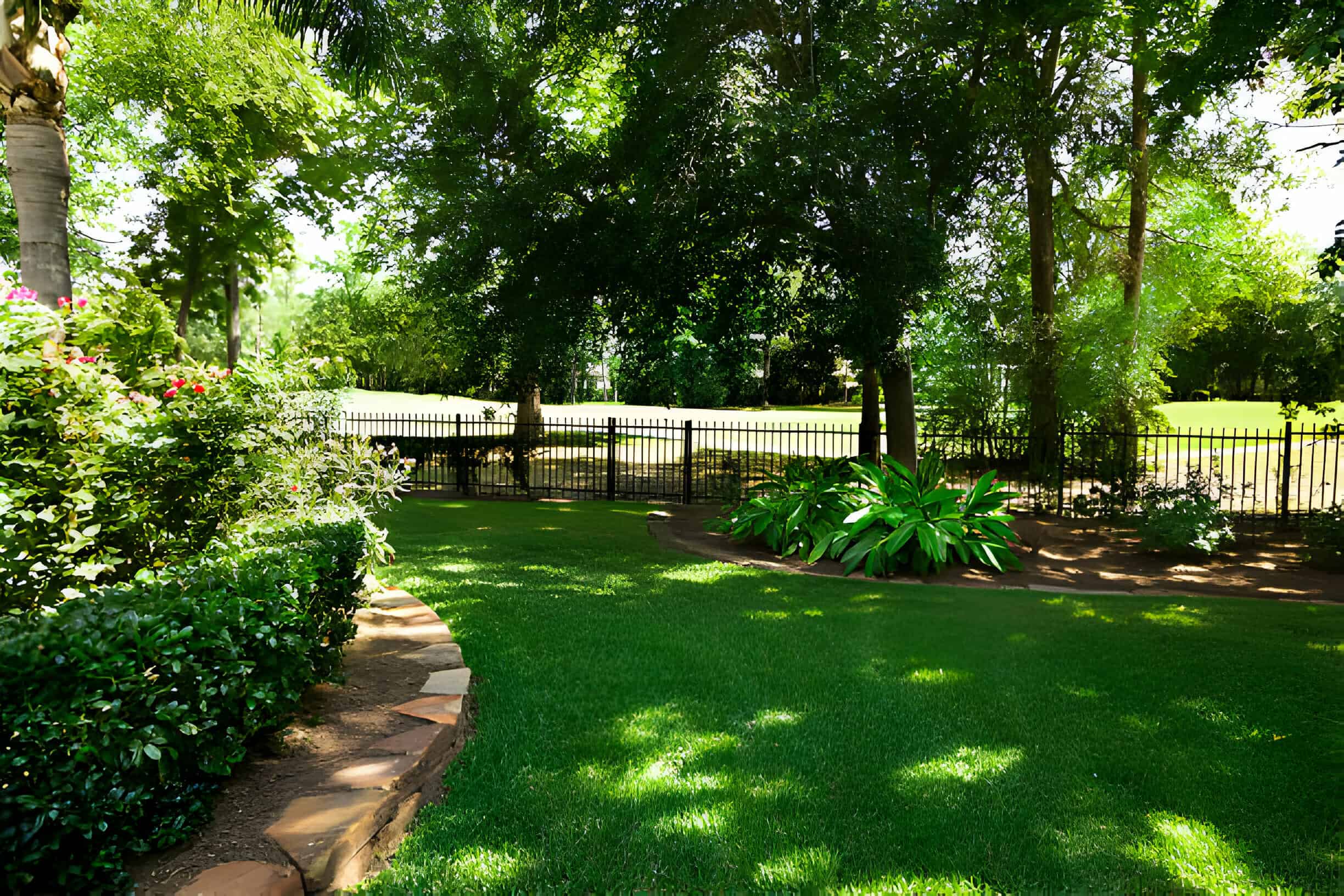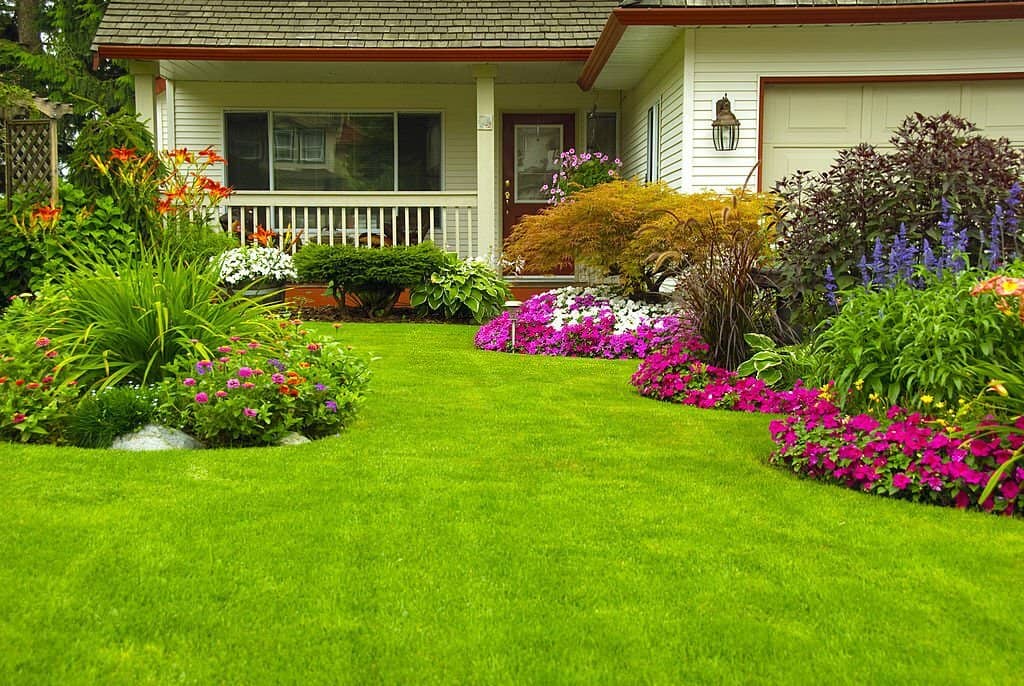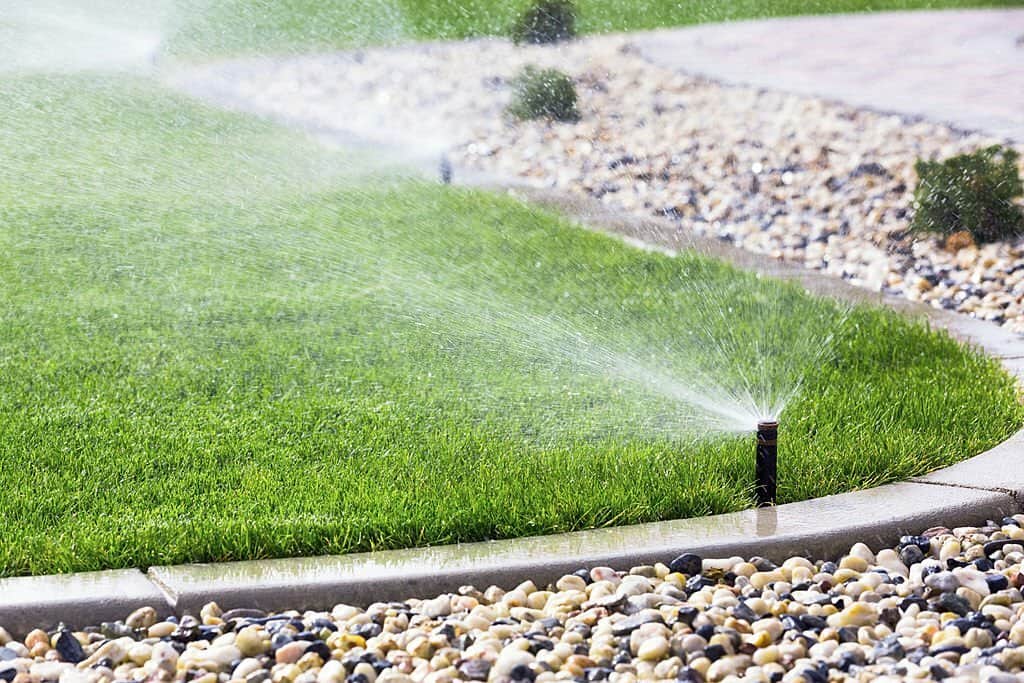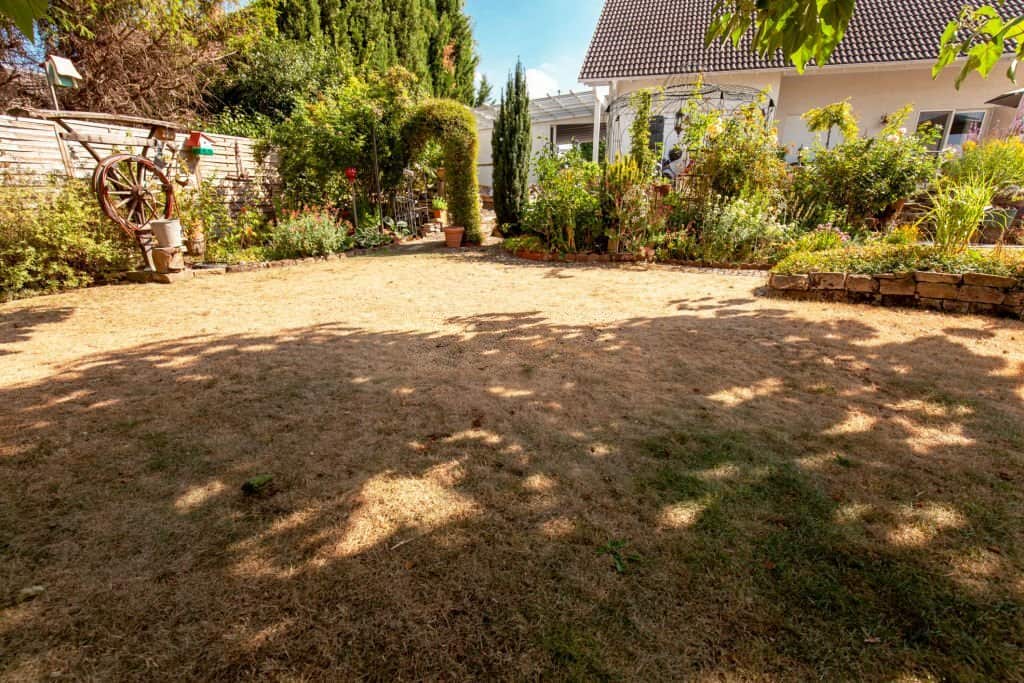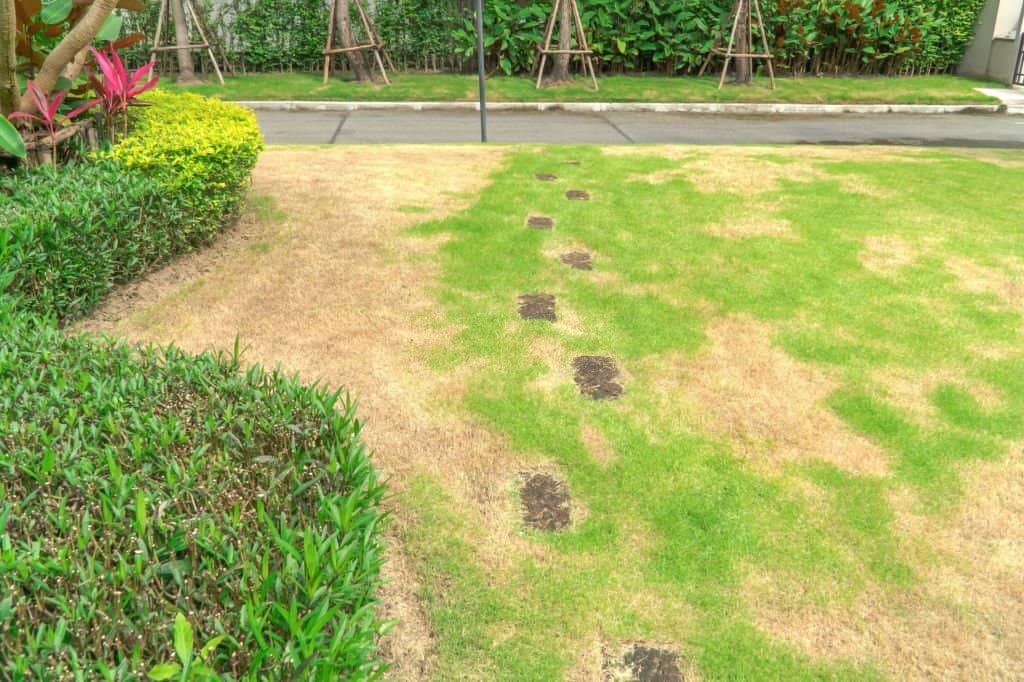We all know that plants need mostly sun, nutrients, and water to be vibrant and green. A well-watered lawn has green grass blades and healthy roots. So when you see any wilted grass, compacted soil, or root rot, there is something wrong. It’s either your lawn isn’t getting enough or getting too much water. What are the signs of overwatered grass, and what do you need to do to fix it?
Key Signs of an Overwatered Lawn
While watering is essential, too much of a good thing can be harmful. It can lead to significant lawn problems. These include fungal diseases and stunted root growth, leaving your lawn vulnerable and unhealthy. Understanding the signs of overwatering is the first step toward addressing the issue. Here are some of the things you should watch out for:
- Discolored Grass and Bare Patches. If you see the grass turn yellow or even brown, you need to change your watering schedule. You might also notice bare spots or thin patches, which are signs that your grass isn’t thriving.
- Mushy Soil and Standing Water. If several areas of the ground feel soggy underfoot or you notice water pools after watering, these are clear warning signs of excessive watering. This excess water creates an ideal environment for fungal problems and mushrooms popping. If you see fungal growth, it’s time to change your watering routine.
- Weeds and Pest Infestations. Overwatered grass is more susceptible to pest problems and invasive weeds that thrive in overly moist conditions.
- Foot Traffic Effects. Wet soil can develop a spongy feeling underfoot; frequent foot traffic makes it more compacted, preventing grass roots from accessing necessary nutrients.
How Overwatering Hurts Your Lawn
Too much water saturates the soil, depriving the roots of oxygen. This causes the roots to rot, which damages the healthy root system needed for a thriving lawn. Excessive moisture can also encourage the growth of too much thatch, a layer of dead plant material that further hinders your lawn’s ability to absorb nutrients.
Overwatering grass can also stifle the root system, causing shallow root development that leaves your lawn vulnerable to drought and disease. If your watering routine isn’t carefully managed, you risk turning a healthy lawn into dead grass.
How to Fix an Overwatered Lawn
Once you’ve identified the common signs of overwatered grass, it’s time to act. Here’s how you can fix an overwatered lawn and get it back to good health:
- Adjust Your Watering Schedule. Do not overwater grass. More frequent watering can cause lawn harm. Reduce watering to allow the soil to dry out. For an established lawn, water deeply but less often to encourage strong root development. Watering in the early morning is ideal, as it allows time for moisture to evaporate before nightfall, reducing the risk of fungal issues.
- Improve Soil Drainage. Aerating the soil can improve drainage and allow the roots to breathe. Avoid heavy foot traffic until the lawn recovers, as this can worsen the density of the soil.
- Inspect Your Sprinkler System or Irrigation System. Check your sprinkler or irrigation system to ensure they aren’t sprinkling water excessively. A faulty system can inadvertently cause overwatering of your lawn. Little Rock Lawns can do this for you and get your system in tip-top shape.
- Remove Thatch and Enhance Absorption. Rake up thatch to allow better water and nutrient penetration. This step can help your lawn absorb water more effectively without becoming oversaturated.
- Reseed Bald Spots. Reseed areas with bare patches to encourage new, healthy grass to grow. Be mindful not to overwater the new lawn, as young grass is particularly vulnerable to excessive moisture.
How to Avoid Overwatering Your Lawn
Preventing over watered lawns starts with proper planning. Here are some tips to help your lawn remain healthy:
- Monitor Weather Patterns. Rain can contribute to more water, so adjust your watering habits according to the weather.
- Hire Little Rock Lawns. Professional lawn services can help you establish a tailored plan for maintenance, ensuring you’re not killing your grass.
- Water Only When Necessary. Established and healthy lawns generally require less water. Stick to a schedule that provides the lawn with just enough moisture to stay healthy. But make sure that you don’t get an under watered lawn.
Overwatering grass is a common mistake that can wreak havoc on your lawn. Remember, a healthy lawn starts with balanced watering and consistent lawn care. Little Rock Lawns is here for all of your lawn care needs. If you have questions and want to schedule a free estimate for lawn maintenance just give us a call (501)257-0323.

